PRINCIPALLY SPEAKING
- A two-way conversation. Like all good conversations, parent–teacher conferences are best when both people talk and listen. The conference is a time for you to learn about your child’s progress in school: Ask to see data about your child’s attendance, grades, and test scores. Find out whether your child is meeting school expectations and academic standards. This is also a time for the teacher to learn about what your child is like at home. When you tell the teacher about your child’s skills, interests, needs, and dreams, the teacher can help your child more.
- Emphasis on learning. Good parent–teacher conferences focus on how well the child is doing in school. They also talk about how the child can do even better. To get ready for the conversation, look at your child’s homework, tests, and notices before the conference. Be sure to bring a list of questions that you would like to ask the teacher.
- Opportunities and challenges. Just like you, teachers want your child to succeed. You will probably hear positive feedback about your child’s progress and areas for improvement. Be prepared by thinking about your child’s strengths and challenges beforehand. Be ready to ask questions about ways you and the teacher can help your child with some of his or her challenges.
- Progress. Find out how your child is doing by asking questions like: Is my child performing at grade level? How is he or she doing compared to the rest of the class? What do you see as his or her strengths? How could he or she improve?
- Assignments and assessments. Ask to see examples of your child’s work. Ask how the teacher gives grades.
- Your thoughts about your child. Be sure to share your thoughts and feelings about your child. Tell the teacher what you think your child is good at. Explain what he or she needs more help with.
- Support learning at home. Ask what you can do at home to help your child learn. Ask if the teacher knows of other programs or services in the community that could also help your child.
- Support learning at school. Find out what services are available at the school to help your child. Ask how the teacher will both challenge your child and support your child when he or she needs it.
- Make a plan. Write down the things that you and the teacher will each do to support your child. You can do this during the conference or after. Write down what you will do, when, and how often. Make plans to check in with the teacher in the coming months.
- Schedule another time to talk. Communication should go both ways. Ask how you can contact the teacher. And don’t forget to ask how the teacher will contact you too. There are many ways to communicate—in person, by phone, notes, email. Make a plan that works for both of you. Be sure to schedule at least one more time to talk in the next few months.
- Talk to your child. The parent–teacher conference is all about your child, so don’t forget to include him or her. Share with your child what you learned. Show him or her how you will help with learning at home. Ask for his or her suggestions.
JUNIOR SCHOOL
Michelle Chaplin, Head of Junior School
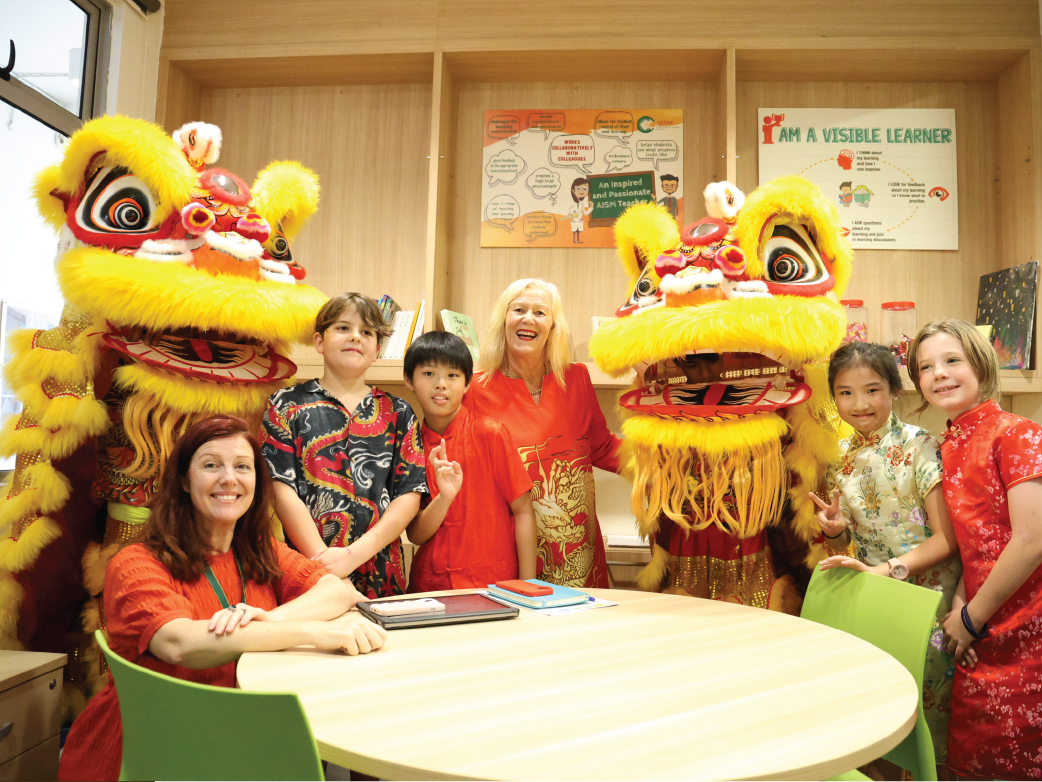
- Hair longer than shoulder length must be tied back in a ponytail.
- All hair accessories should be coloured white, black or navy.
- All black shoes should be worn with white shirts/dresses.


- Frankie Jones
- Yi Chen Chua
| Thorpe | Sauvage | Rafter | Freeman |
|---|---|---|---|
| House Captain Sara Inagaki Vice Captain Halle Jackson | House Captain Davinah McDevitt Vice Captain Hannah Wang | House Captain Ruohan Liu Vice Captain Haruto Inuishi | House Captain Giovanni Vespignani Vice Captain Jasper Zhang |
| Class | Representative's Names |
|---|---|
| FG |
|
| 1G |
|
| 1W |
|
| 2G |
|
| 3W |
|
| 3G |
|
| 4G |
|
| 5G |
|
| 5W |
|
| JS Visible Learning Ambassadors 2024 | |
|---|---|
| Year | Name |
| Year 2 | Mizuki Tsukamoto |
| Harvey Yeo | |
| Year 3 | Lily Iyzuan |
| Ethan Ng | |
| Tanmay Atluri | |
| Manuela Sanchez Chaves | |
| Year 4 | Jian Zi Neoh |
| Derek Tan | |
| Laura Adrin | |
| Amy Sun | |
| Edward Broadbent | |
| Year 5 | Jillian Fernandez |
| Charmayne Cheong | |
| Noah Corby | |
| Fergus Yong | |

Year 2
Ms Tamara Kerr, Year 2 Teacher
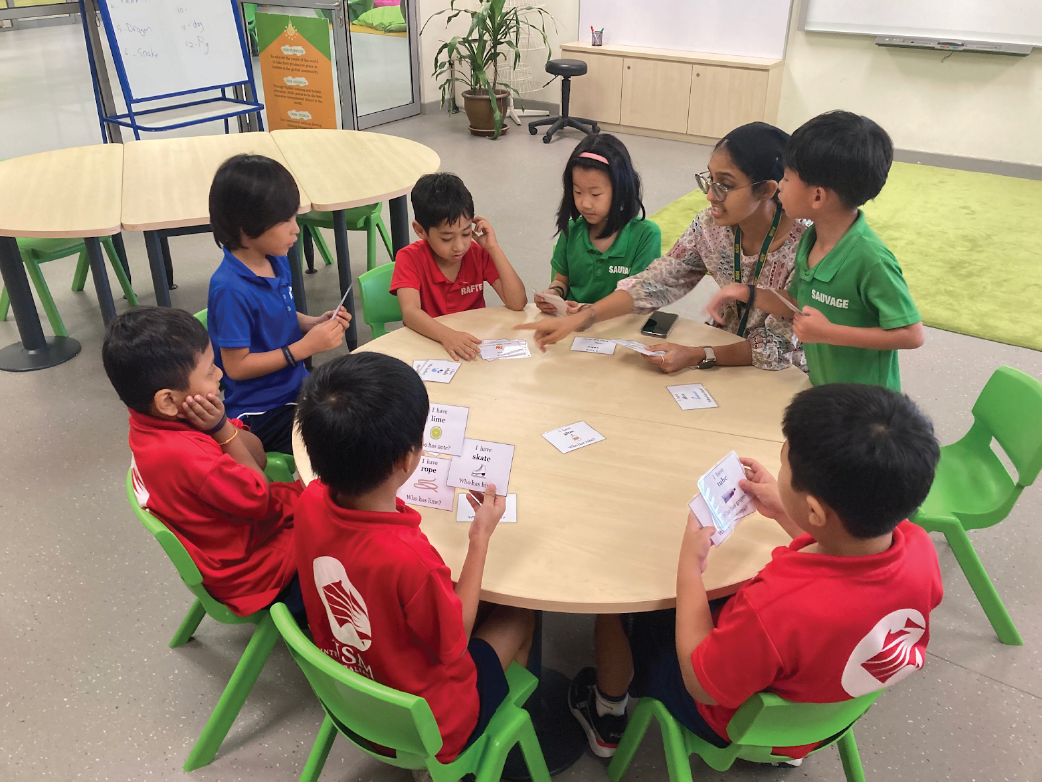
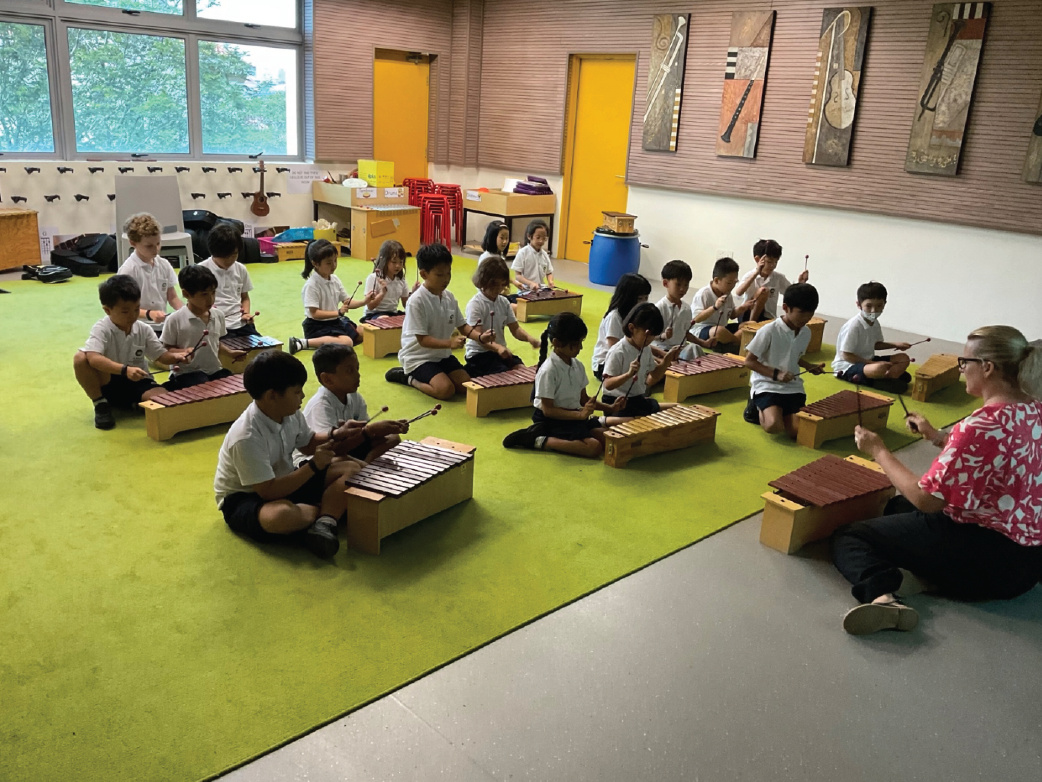
LOTE Bahasa Malaysia activities
Cikgu Adila & Cikgu Mohd Fadhly, Junior School LOTE Bahasa Malaysia Teacher
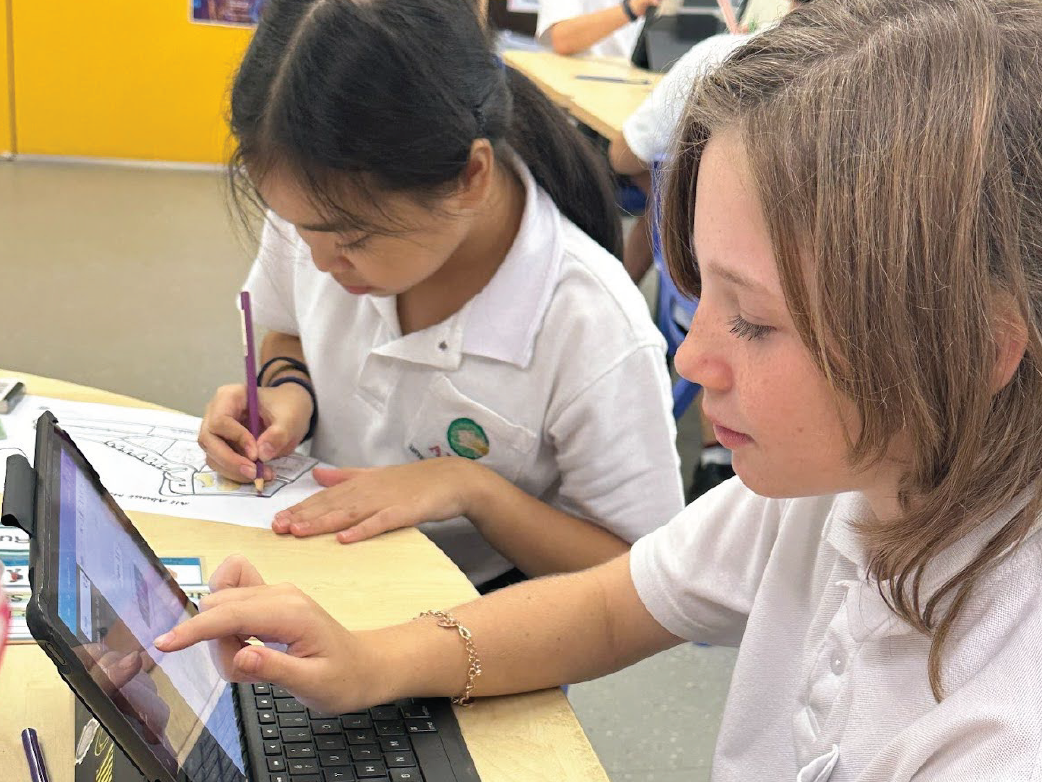
‘Tentang diri saya’ or All About Me activity being done by Year 1-5 learners.
The JS LOTE Bahasa team began the year with creative tasks for all students from Year 1-5 introducing themselves in Bahasa Malaysia; ‘Diri Saya’ (Myself). We also discovered students’ talents and interests to help them improve their skills in Reading, Speaking, Writing and Listening in Bahasa Malaysia when they are doing the visible thinking activity; The My Growth Mindset Message for the year in Bahasa Malaysia. It was also amazing to see the learners challenge themselves to gain the phonics in Bahasa Malaysia for the first time especially for our ELC learners. They are really excited to use the entry chants before the lesson to build their confidence which is ‘Saya bijak, Saya dengar, Saya terbaik!’ (I am smart, I listen, I am the best!)
The students have been participating in the lessons especially in Listening and Reading techniques. The level of confidence has started to increase by using the lesson routine of Listening-as-Modelling and they have learnt to use the Bahasa Malaysia Language to understand the Malaysian culture and lifestyle. ‘Mari Bercerita!’ and ‘Mari Menyanyi’ activity, helped the students to add more vocabulary and to improve their pronunciation and intonation in reading Bahasa Malaysia stories. It created a great opportunity for the students to express Bahasa Malaysia words in different ways.
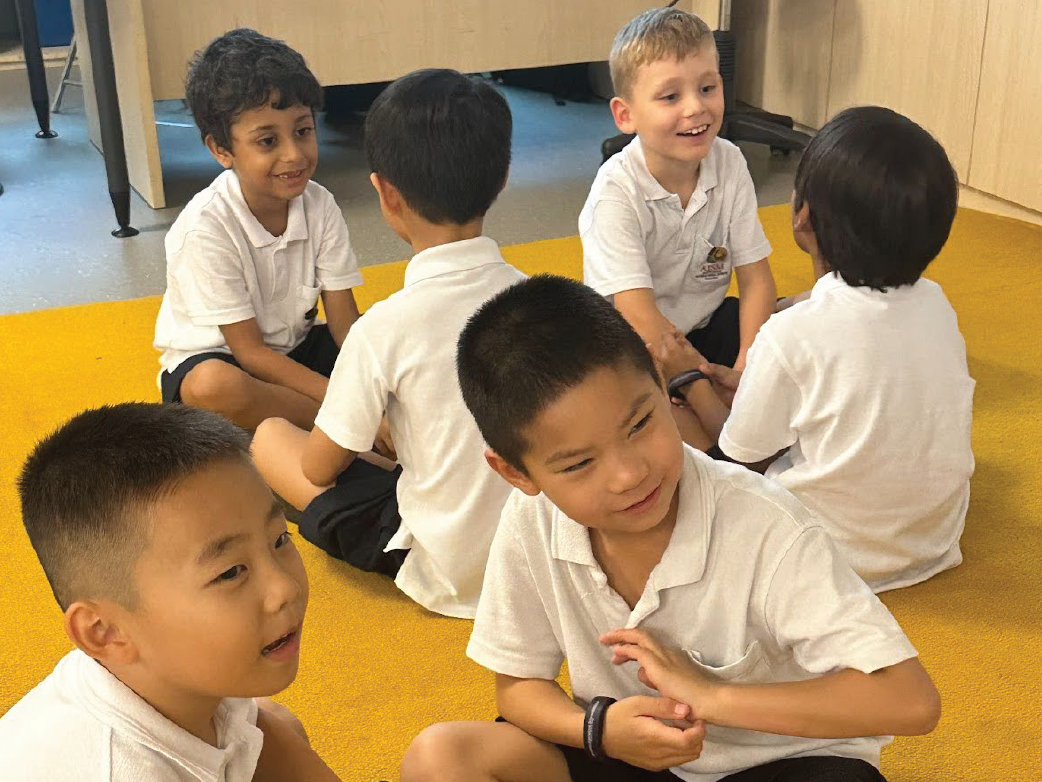
The amazing Year 1 learners took the challenge to have a conversation in Bahasa Malaysia with their classmates about themselves, ‘Siapa saya?’ / ‘Who am I?’
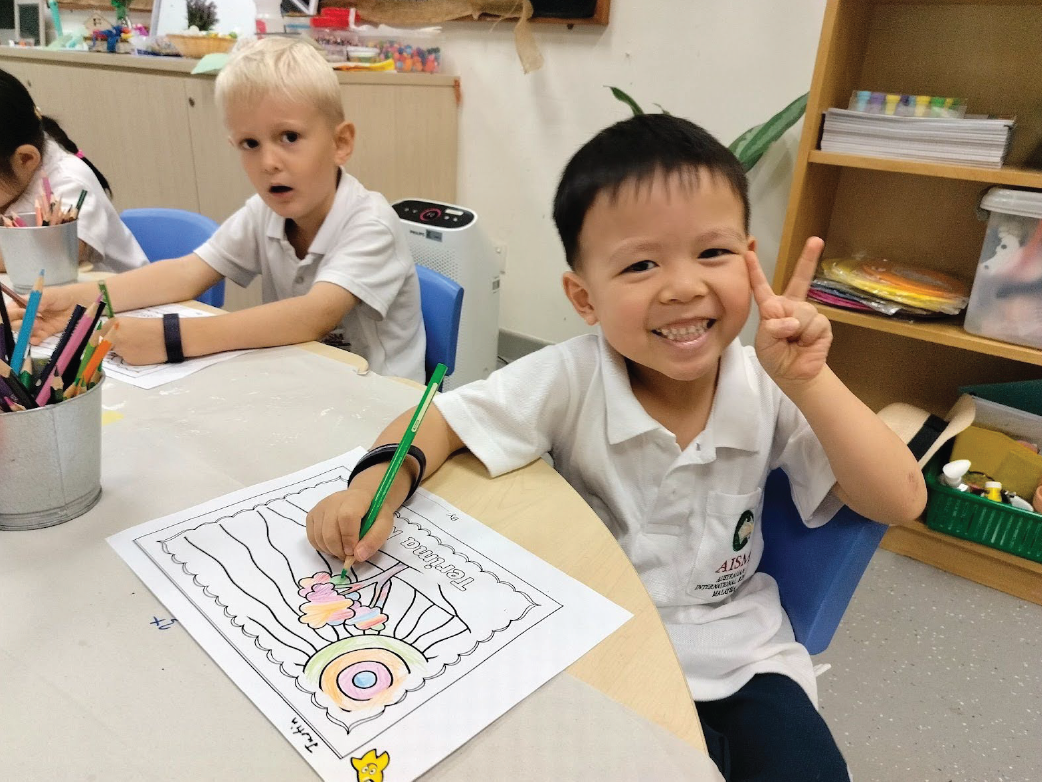
The awesome ELCW learners excitedly practiced saying the word ‘terima kasih’ or thank you.
LOTE Chinese-Chinese New Year
Ms Wan and Mr Fong, Junior School LOTE Mandarin Teachers
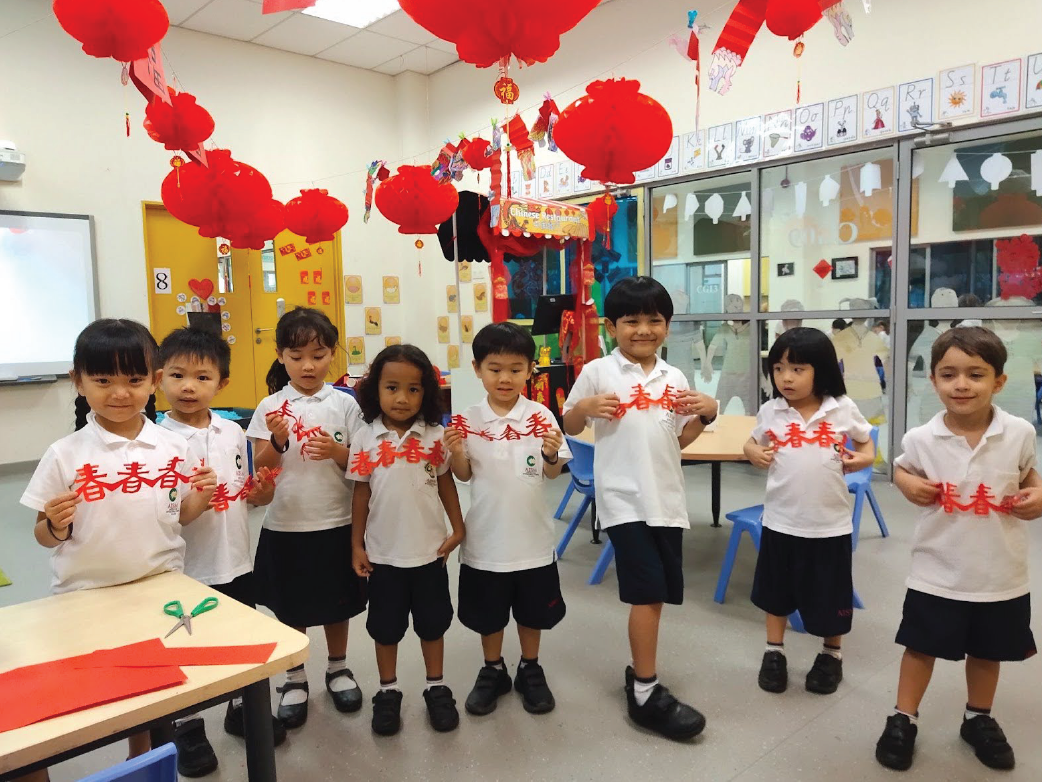
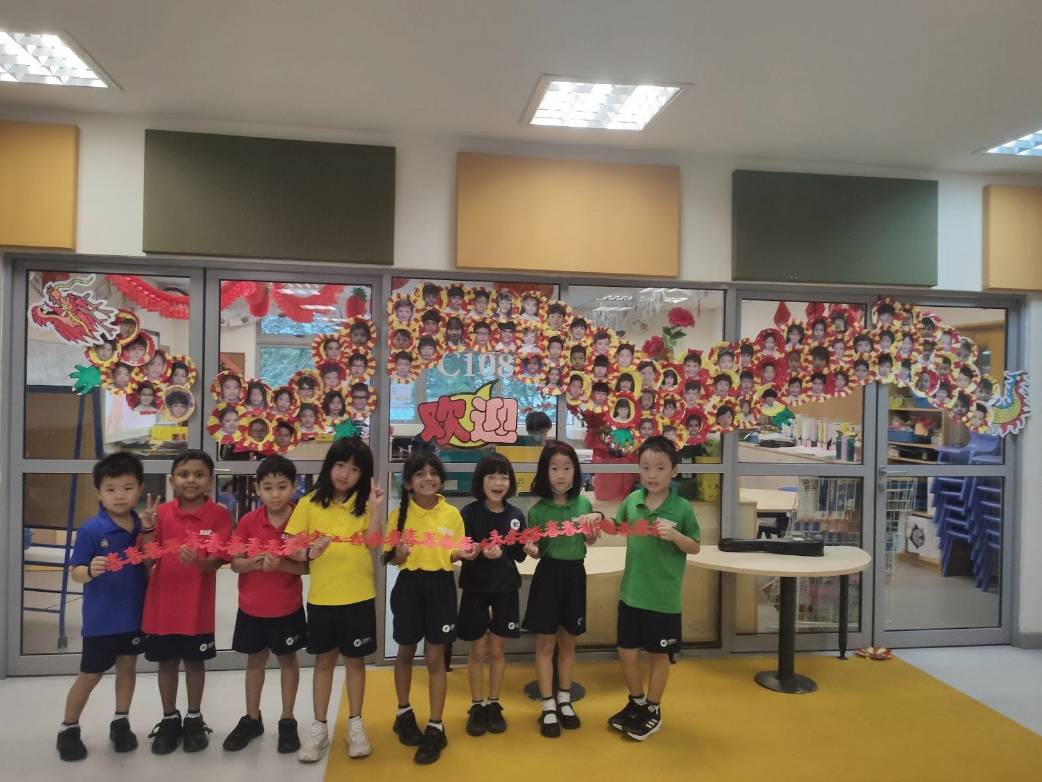
MIDDLE & SENIOR SCHOOL
Mardi Gras - Shrove Tuesday
Stephanie Rajani, French Teacher
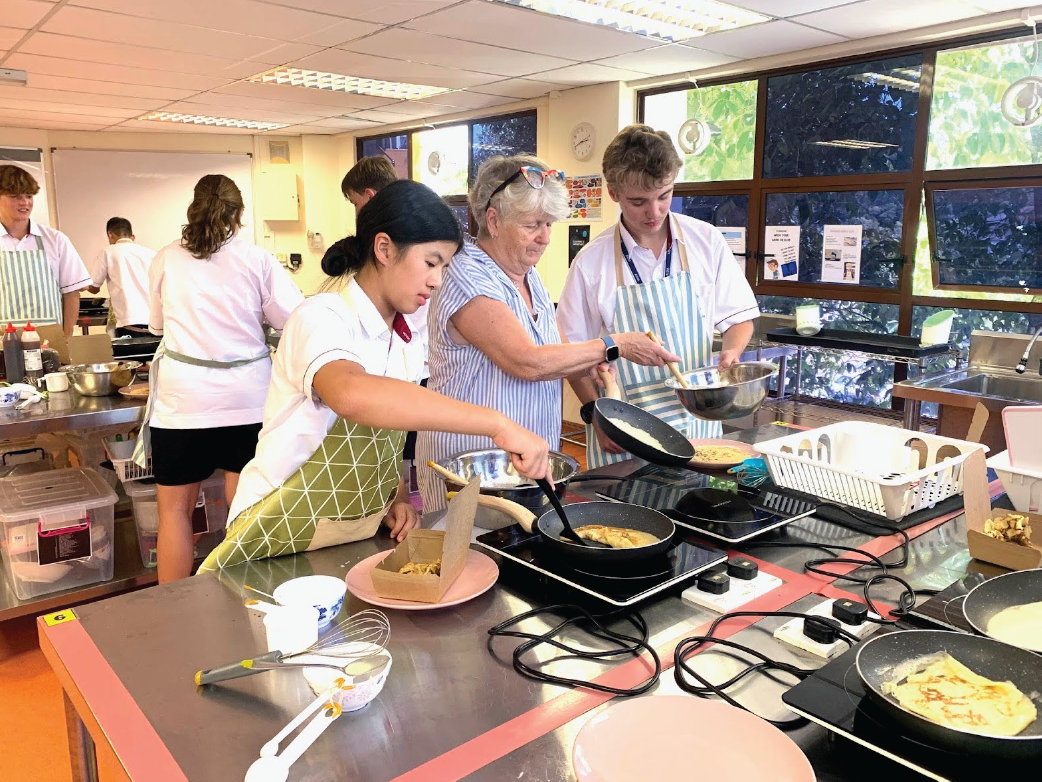
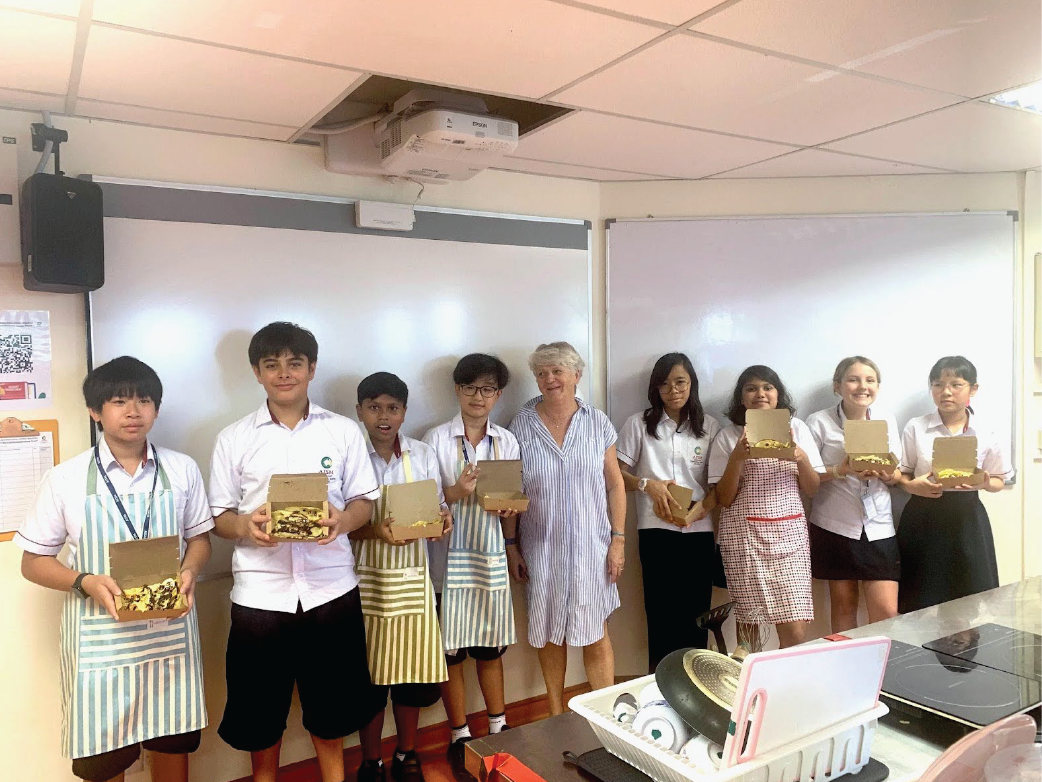
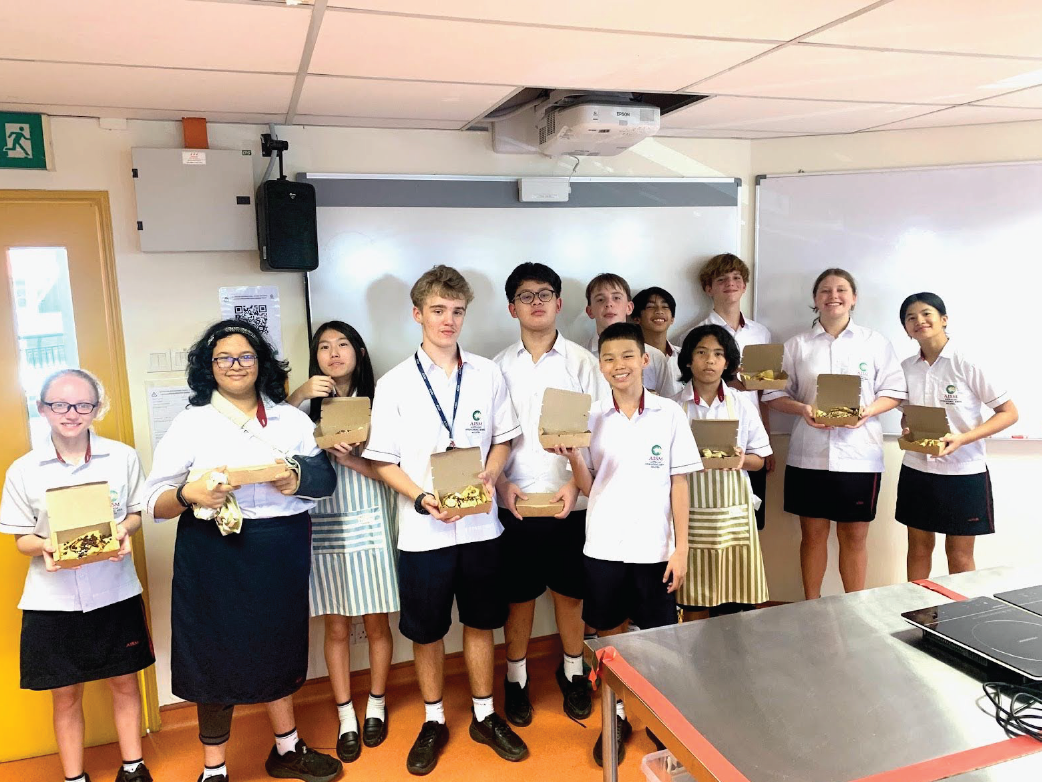
WHOLE SCHOOL
Fencing Competition
Ivan Yoong, Whole School CCA & Sports Coordinator

Last December, Mi’raj from Year 1W participated in a Fencing Competition at Johor. She finished second in the U9 Category even though she was one of the youngest fencers to compete in this event. Well done Mi’raj!
AIMS Fixtures
Ivan Yoong, Whole School CCA & Sports Coordinator
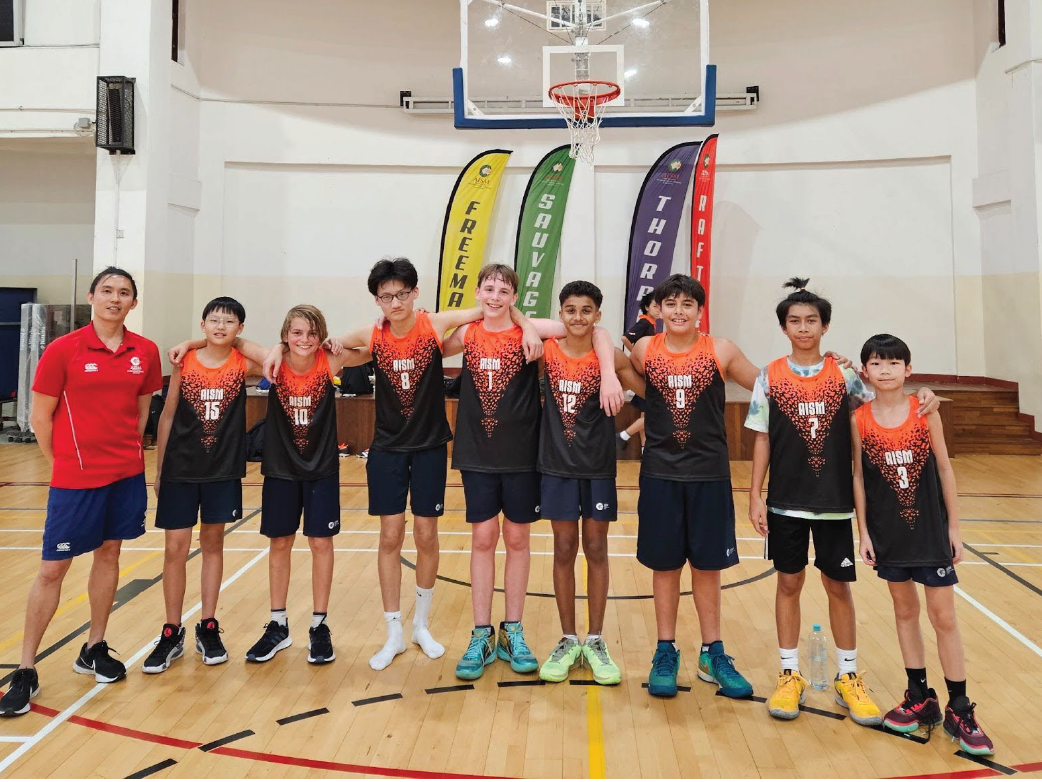
| Boys | Edwin Ng, Xingyu Pan, Ethan Selvindoss, Anson Cai, Alex Furlan, Arif Muhammad Fairuz, Damian Koegelenberg and Maanaki McFarland |
|---|
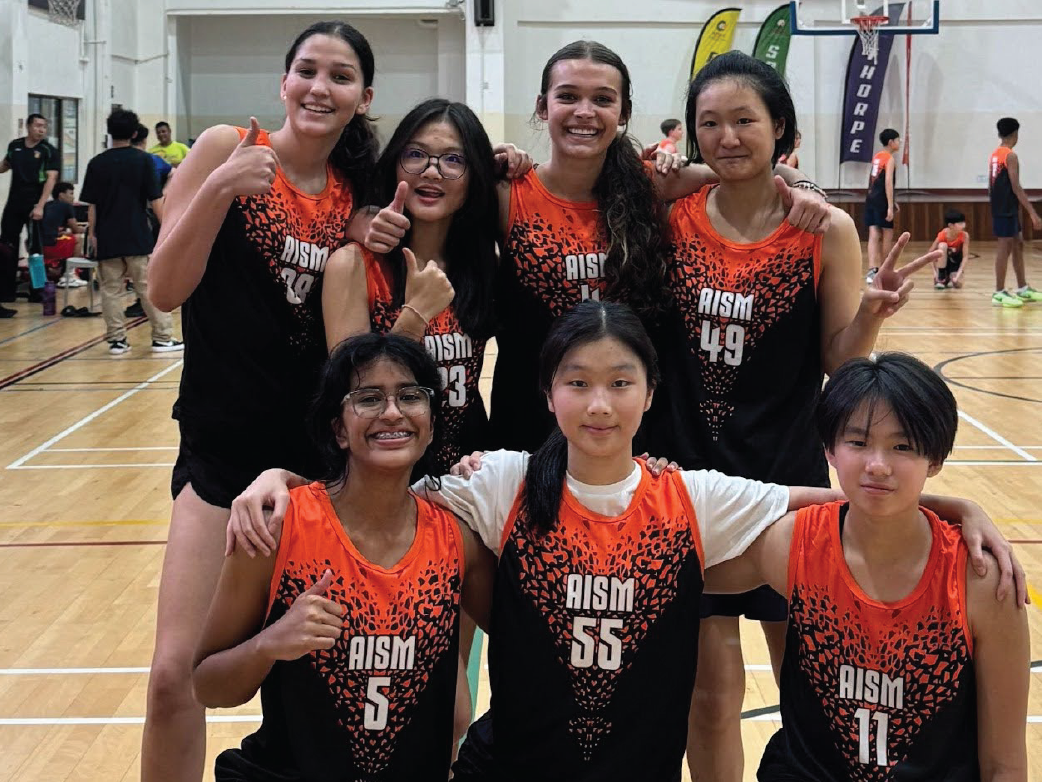
| Girls | Alana Saldhana, Cherish Wang, Hyuna Oh, Ashley Yoong, Jasmin Unsworth, Wakana Matsuo, and Grace Boam |
|---|
MSS Swimming Carnival 2024
Ivan Yoong, Whole School CCA & Sports Coordinator
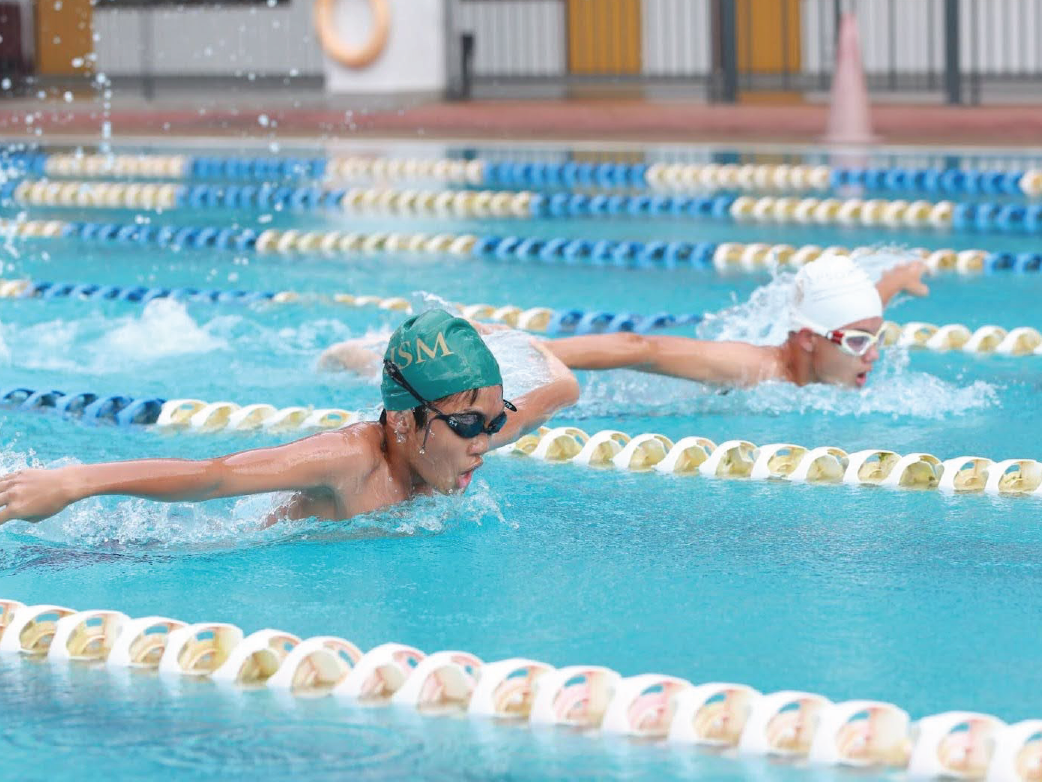
- The trial week ended last Monday. If your child attends the activity for longer than one week, you will be charged the full semester amount.
- There will be no CCA on Week 7 (4 - 7 March) due to Camp Week.
- A gentle reminder for all parents to inform Coach Ivan of your child(ren)’s absences in CCA.
Calendar Invites for Parents
ICT support team
- Click on the following link to view the calendar: Calendar Link
- Once redirected to the calendar page, look for the '+ Google Calendar' button on the bottom right side. Click on the button.

- Add the calendar to your School Gmail account.
For any assistance, please feel free to reach out to our ICT support team at elearning@aism.edu.my.
Thank you for staying connected with our school community!



